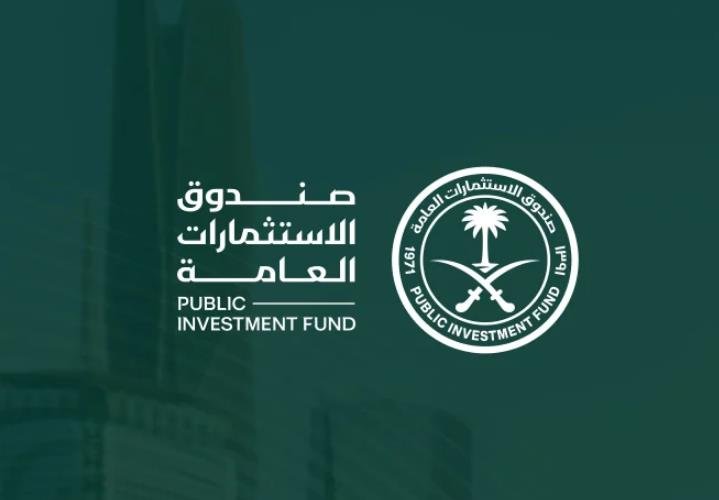Saudi Arabia has unveiled its state budget for 2025, forecasting a fiscal deficit of 101 billion riyals ($26.88 billion). This significant shortfall is primarily attributed to continued investments in massive gigaprojects aimed at diversifying the kingdom’s economy away from its traditional reliance on oil.
The finance minister, Mohammed Al Jadaan, affirmed that Saudi Arabia remains committed to its ambitious Vision 2030 plan, despite the challenges posed by declining oil prices and prolonged voluntary production cuts by the world’s largest oil exporter. The budget aligns with earlier government projections made in September, representing approximately 2.3% of the nation’s gross domestic product (GDP).
Massive Investments Drive Fiscal Deficit
Saudi Arabia’s 2025 budget highlights a total expenditure of 1.285 trillion riyals, consistent with previous forecasts. This spending is projected to account for about 30% of GDP over the next three years. The primary driver of this expenditure is the ongoing gigaprojects under Vision 2030, which aim to transform the kingdom’s economic landscape.
Jadaan emphasized that these investments are crucial for fostering growth and achieving long-term economic sustainability. “Our strategic spending on Vision 2030 projects is essential for reducing our dependence on oil and building a resilient economy,” he stated during the budget announcement.

Vision 2030: Steering Economic Transformation
Vision 2030 remains the cornerstone of Saudi Arabia’s economic strategy, focusing on diversifying revenue streams and developing new sectors such as tourism, manufacturing, and technology. The plan requires substantial investments to build infrastructure, create jobs, and stimulate economic activity across various industries.
Key Components of Vision 2030:
- Infrastructure Development: Building modern cities, transportation networks, and energy projects.
- Tourism Expansion: Developing resorts, cultural sites, and entertainment venues to attract international visitors.
- Manufacturing Growth: Enhancing the production capabilities in sectors like petrochemicals, automotive, and pharmaceuticals.
- Technology and Innovation: Investing in digital transformation, research and development, and smart city initiatives.
These initiatives are designed to create a sustainable economic model that can withstand fluctuations in oil prices and global economic conditions.
Gigaprojects: Balancing Ambition with Reality
Despite the lofty goals of Vision 2030, the kingdom has had to scale back some of its more ambitious projects to manage costs and ensure feasibility. One notable example is the NEOM project, a futuristic desert city envisioned to be a hub for innovation and technology.
Jadaan addressed concerns about NEOM’s extensive timeline and budget. “NEOM is a long-term project that will take decades to complete. If anyone is thinking NEOM in its grand size is going to be built and operated and making money in five years, that’s foolish. We are not foolish. We are wise people,” he explained during a press briefing.
Adjustments to Gigaprojects:
- Phased Development: Breaking down large projects into manageable phases to ensure steady progress and cost control.
- Prioritizing Essentials: Focusing on completing critical components necessary for hosting global events and enhancing infrastructure.
- Budget Reallocations: Shifting funds to projects that offer immediate economic benefits and long-term sustainability.
These adjustments reflect a pragmatic approach to managing the kingdom’s ambitious plans while addressing economic constraints.
Fiscal Strategy: Revenue and Expenditure Balance
The 2025 budget projects total revenue at 1.184 trillion riyals, slightly below the total expenditure. This gap results in a projected fiscal deficit of 101 billion riyals. The deficit is a calculated move to support the kingdom’s transformation goals, acknowledging the short-term financial strain for long-term gains.
Budget Breakdown:
| Category | Amount (Riyals) | Percentage of GDP |
|---|---|---|
| Total Expenditure | 1.285 trillion | 30% |
| Total Revenue | 1.184 trillion | |
| Fiscal Deficit | 101 billion | 2.3% |
The balanced approach aims to sustain economic growth while managing the deficit through strategic investments and future revenue enhancements.
Challenges and Opportunities Ahead
Saudi Arabia faces several challenges as it pursues its Vision 2030 objectives. Declining oil revenues and global economic uncertainties pose significant hurdles. However, the kingdom also has ample opportunities to leverage its strategic investments to build a diversified and resilient economy.
Key Challenges:
- Oil Revenue Volatility: Dependence on oil prices makes the economy susceptible to global market fluctuations.
- Project Management: Ensuring that gigaprojects are completed on time and within budget.
- Economic Diversification: Successfully developing non-oil sectors to create sustainable growth.
Potential Opportunities:
- Job Creation: Generating employment opportunities across various sectors to reduce unemployment rates.
- Innovation Hub: Establishing Saudi Arabia as a center for technological innovation and research.
- Global Investment Appeal: Attracting foreign investment through improved infrastructure and business-friendly policies.
Addressing these challenges while capitalizing on opportunities will be crucial for the kingdom’s economic success in the coming years.
Statements from Saudi Leadership
Crown Prince Mohammed bin Salman, the de facto ruler of Saudi Arabia, lauded the Vision 2030 reforms in a statement accompanying the budget release. “The positive indicators of the Saudi economy reflect our unwavering commitment to transforming our nation,” he said, highlighting the progress made despite economic headwinds.
Al Jadaan echoed these sentiments, emphasizing the importance of strategic spending in achieving the kingdom’s long-term goals. “Our investments today are laying the foundation for a prosperous and diversified economy tomorrow,” he remarked.
Public and International Reactions
The announcement of the 2025 budget has garnered mixed reactions both domestically and internationally. While some applaud the kingdom’s dedication to economic reform, others express concerns about the rising fiscal deficit and the sustainability of large-scale investments.
Public Sentiment:
- Supportive Views: Many Saudis support the Vision 2030 initiatives, recognizing the need to diversify the economy and create new opportunities.
- Critical Perspectives: Some critics worry about the potential for increased debt and the strain on public finances caused by the fiscal deficit.
International Outlook:
- Investor Confidence: Foreign investors remain cautiously optimistic, attracted by the kingdom’s strategic plans but wary of economic uncertainties.
- Global Partnerships: Saudi Arabia continues to seek international partnerships to support its economic transformation and secure funding for its projects.
The balanced approach in the budget aims to address both domestic needs and international expectations, fostering a stable environment for growth and investment.
